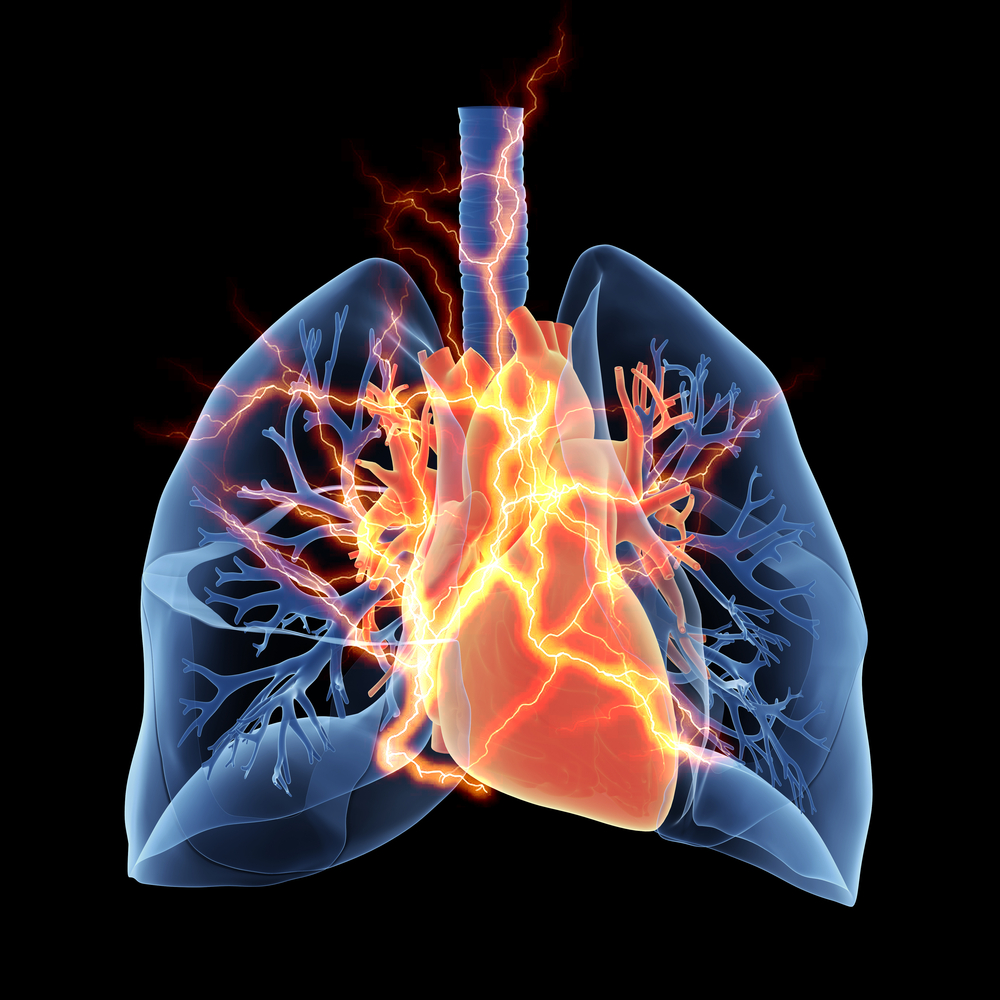Pulmonary Artery Denervation Can Improve CpcPH Patients’ Outcome, Trial Shows

Invasive pulmonary artery denervation is safe and can improve the outcome of patients with combined pre- and post-capillary pulmonary hypertension associated with left heart failure, compared with standard of care, results of a randomized trial show.
The findings were reported in the study “Pulmonary Artery Denervation Significantly Increases 6-Min Walk Distance for Patients With Combined Pre- and Post-Capillary Pulmonary Hypertension Associated With Left Heart Failure: The PADN-5 Study,” published in the journal JACC: Cardiovascular Interventions.
In many patients, pulmonary hypertension (PH) is caused by left heart disease (LHD), including left ventricular dysfunction, valve disease, or congenital left heart disease.
In recent years, an additional form of the disease with significant vascular remodeling was identified as reactive or combined pre-capillary and post-capillary PH (CpcPH).
CpcPH is defined by 7 mmHg or higher of diastolic pressure gradient (DPG), more than 3 Wood units for pulmonary vascular resistance (PVR), or both. This new entity has a different clinical presentation than PH and, despite its potential poor outcome, it remains unclear whether PH-targeted therapies are suitable to manage CpcPH.
Interested in PH research? Check out our forums and join the conversation!
Previous studies have suggested that a pulmonary arterial vasoconstrictor component is involved in the development of CpcPH. This could mean that pulmonary artery denervation (PADN) — a procedure to reduce the overactivation of nerves controlling the vasoconstrictor mechanism— could be a potential strategy to treat people with CpcPH.
Results of a previous Phase 2 clinical trial (chiCTR-ONC-12002085) demonstrated that PADN was safe and feasible to manage the symptoms of patients with idiopathic pulmonary arterial hypertension (PAH). Patients showed significant improvements in overall blood flow pressure, exercise capacity, and cardiac function, with less frequent PAH-related events and death after PADN treatment.
Now researchers evaluated in a new clinical study (NCT02220335) the potential of PADN to manage the symptoms of patients with CpcPH associated with LHD.
The study enrolled 98 patients across four sites. They were randomized to undergo PADN treatment or to take Revatio (sildenafil, marketed by Pfizer) and undergo a sham PADN procedure (a faked surgical intervention without the therapeutic steps).
After six months of follow-up, patients treated with PADN showed an improvement of 21.4%, compared to baseline, in the 6-minute walk distance test (6MWD) — a test assessing exercise capacity. Patients treated with Revatio had an improvement of only about 4.9%.
Still, 18 patients showed a reduction in exercise capacity, including six in the PADN group. Additional analyses showed that a reduction in 6MWD in these patients was associated with an increased risk of clinical worsening.
PADN-treated patients also showed significantly lower PVR than those treated with Revatio at six months, 29.8% compared to 3.4%.
In general, the PADN procedure was found to be associated with significant improvements in all hemodynamic (blood flow) parameters, except for right atrial pressure, which tended to be lower.
Also, “clinical worsening was less frequent in the PADN group compared with the sildenafil [Revatio] group (16.7% vs. 40%),” the researchers said.
At the end of the study there were seven all-cause reported deaths, two of which were in the PADN group and five in the Revatio-treated group.
Overall, “the present randomized sham-controlled study is the first to our knowledge (…) to demonstrate the hemodynamic and functional benefits of PADN in patients with CpcPH,” researchers said.
Additional randomized studies are still needed to further compare the long-term impact of PADN in the outcome of this particular patient population.







